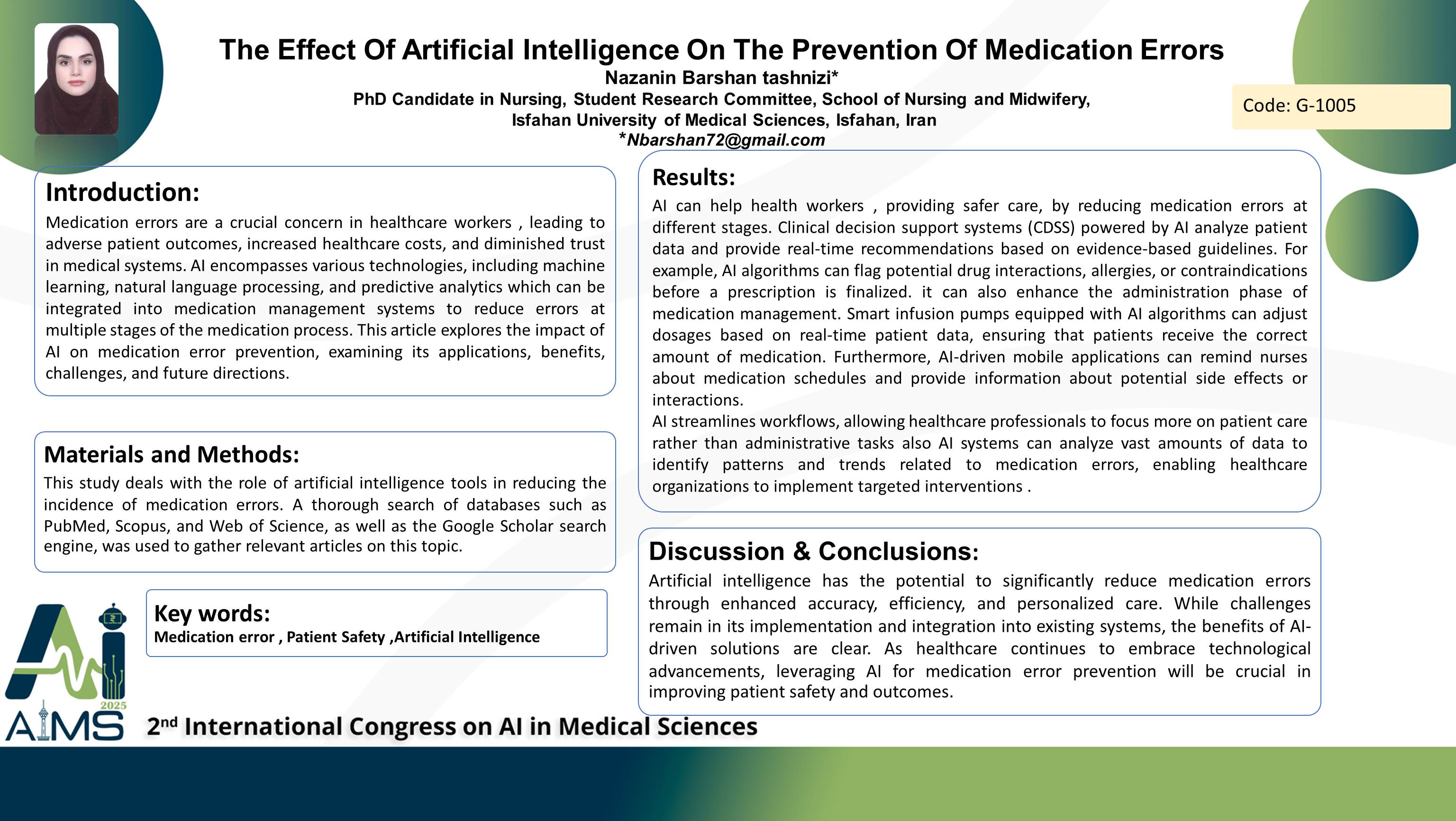تاثیر هوش مصنوعی در پیشگیری از خطاهای دارویی
کد: G-1005
نویسندگان: Nazanin Barshan Tashnizi * ℗
زمان بندی: زمان بندی نشده!
برچسب: سیستم های تصمیم یار بالینی
دانلود: دانلود پوستر
خلاصه مقاله:
خلاصه مقاله
Background and aims : Medication errors are a crucial concern in healthcare workers , leading to adverse patient outcomes, increased healthcare costs, and diminished trust in medical systems. AI encompasses various technologies, including machine learning, natural language processing, and predictive analytics which can be integrated into medication management systems to reduce errors at multiple stages of the medication process. This article explores the impact of AI on medication error prevention, examining its applications, benefits, challenges, and future directions. Method : This study deals with the role of artificial intelligence tools in reducing the incidence of medication errors. A thorough search of databases such as PubMed, Scopus, and Web of Science, as well as the Google Scholar search engine, was used to gather relevant articles on this topic. Results : AI can help health workers , providing safer care, by reducing medication errors at different stages. Clinical decision support systems (CDSS) powered by AI analyze patient data and provide real-time recommendations based on evidence-based guidelines. For example, AI algorithms can flag potential drug interactions, allergies, or contraindications before a prescription is finalized. it can also enhance the administration phase of medication management. Smart infusion pumps equipped with AI algorithms can adjust dosages based on real-time patient data, ensuring that patients receive the correct amount of medication. Furthermore, AI-driven mobile applications can remind nurses about medication schedules and provide information about potential side effects or interactions. AI streamlines workflows, allowing healthcare professionals to focus more on patient care rather than administrative tasks also AI systems can analyze vast amounts of data to identify patterns and trends related to medication errors, enabling healthcare organizations to implement targeted interventions . Conclusion: Artificial intelligence has the potential to significantly reduce medication errors through enhanced accuracy, efficiency, and personalized care. While challenges remain in its implementation and integration into existing systems, the benefits of AI-driven solutions are clear. As healthcare continues to embrace technological advancements, leveraging AI for medication error prevention will be crucial in improving patient safety and outcomes.
کلمات کلیدی
Medication Error, Artificial Intelligence, Patient Safety
